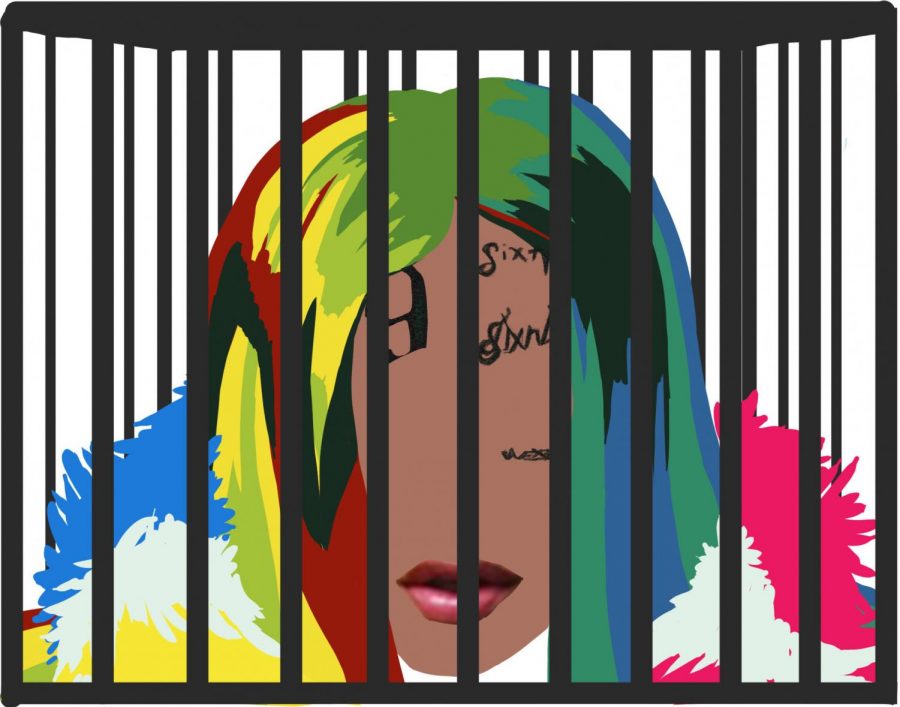Can someone be a bad person but a good artist?
December 16, 2018
Recently, New York rapper 6ix9ine was arrested, sparking an internet outcry for the rapper’s release. His arrest was due to racketeering, the act of committing repeated offences often connected to illegal organized crime within a ten year span. Currently, 6ix9ine is imprisoned, albeit on possession of guns and not the fact that he filmed a thirteen year old undressing. Many argue that 6ix9ine’s misdeeds make his music immoral to listen to. The main response is that if an artist is a bad person, and makes good art, shouldn’t we still like the art?
We shouldn’t separate the artist from the art. The two are not mutually exclusive and I think it’s important, especially now, that we keep in mind what media we consume.
The idea of separating the art from the artist only ever seems to arise when the artist has done something controversial. If an artist has done something that is clearly wrong, it’s the responsibility of their supporters to bring it to light and make an example out of them. However, more often than not, the fans will discard the controversy, citing the excuse, “I like their music, not them.” When Justin Bieber sang “Baby” during his teenage heartthrob years, he went viral because people associated that cute dude with love. Separating the artist from the art rips away context. The artist is always in our subconscious, helping us put together the lyrics and the meaning. Seeing Travis Scott live his life of luxury makes his bragging feel real. But when XXXTentacion’s police report came out detailing his fervent abuse of his ex-girlfriend, people rushed to his defense, citing the separation of art from artist. Only when the artist does something horrible do people use this excuse. It’s shallow and hypocritical.
Excusing artists for their actions lets them off the hook, and normalizes their actions. The counterargument is that even if someone on the TV does it, nobody smart would copy them. However, as time goes on, a new generation will consider what they see around them as normal, and that includes pop icons. A celebrity is a role model whether they choose to be or not. Even if they do things that aren’t in good Christian faith, they should at least be moral people.
By preaching this message of separating the artist from the art, we ignore what the artist has really done and boil it down to “He’s a bad guy.” This puts artists in a box, where we can’t evaluate the reality of the errors they’ve made. One artist may be treated too severely, while others may be let off the hook. For example, when Brother Nature had his earlier tweets exposed to be provocative stuff, people treated him like they treated X, who beat his pregnant ex-girlfriend relentlessly. It turns out that he was just 13 and trying to be edgy. If we shroud the reality of people’s crimes under one blanket term, we can’t accurately gauge anything.
6ix9ine’s imprisonment is not uncalled for, and he should stay there. Whether or not he has musical talent, to listen to his music and put him on a pedestal will ultimately harm society by allowing his crimes to be normalized and ultimately, forgotten.





